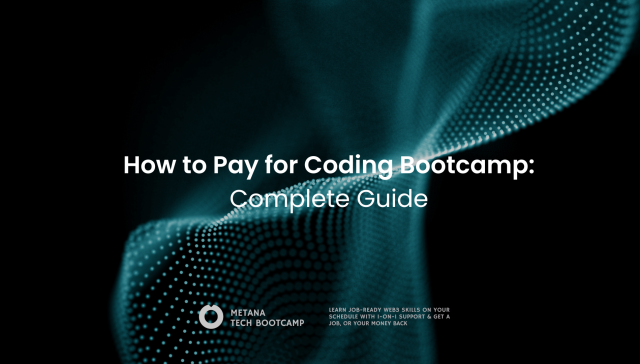Web3 is ushering in a new era of financial applications, blending traditional finance (TradFi) with decentralized finance (DeFi). Many projects straddle this line, requiring a unique accounting approach known as Mixed Accounting. This method helps track and manage both on-chain and off-chain transactions, providing a comprehensive view of financial activities in a hybrid environment.
What is Mixed Accounting?
Mixed accounting is essential for Web3 projects that operate in both the traditional and decentralized financial worlds. It involves two main components:
On-Chain Accounting
This refers to standard accounting principles applied to cryptocurrency transactions. It involves recording the inflows and outflows of tokens, tracking wallet balances, and managing other on-chain activities. For instance, when a user buys an in-game asset with cryptocurrency, the transaction is recorded on the blockchain.
Off-Chain Accounting
This involves tracking the value and movement of in-game assets, user accounts, and virtual economies. These activities are not recorded on the blockchain but are crucial for understanding the complete financial picture. For example, the in-game utility of an asset, such as a sword in a play-to-earn game, needs to be tracked off-chain.
Navigating the Gray Area
Mixed accounting presents several challenges:
- Valuation Determining the fair market value of in-game assets can be subjective and varies over time. For example, the value of a unique sword in a game may depend on its rarity, utility, and player demand. This variability can impact financial statements and requires careful consideration.
- Regulatory Uncertainty The regulatory landscape for mixed economies is still evolving. Compliance with existing financial regulations while adhering to new guidelines for cryptocurrency and digital assets can be complex. Businesses need to stay updated with regulatory changes and adapt their accounting practices accordingly.
- Technical Integration Bridging the gap between on-chain and off-chain data for accurate reporting requires robust technical infrastructure. This includes integrating blockchain data with traditional accounting systems and ensuring data consistency across platforms.
Real-World Applications
Several Web3 projects utilize mixed accounting to manage their hybrid financial activities:
Play-to-Earn Games
Axie Infinity is a prime example of mixed accounting. The game tracks the on-chain value of its Smooth Love Potion (SLP) token, which players earn and use for breeding Axies. Simultaneously, it tracks the off-chain utility of SLP within the game, such as its use for breeding or trading Axies.
Decentralized Marketplaces
OpenSea is a decentralized marketplace for non-fungible tokens (NFTs). It tracks on-chain cryptocurrency transactions for NFT purchases and sales. Additionally, it accounts for the off-chain value and ownership of digital art pieces, ensuring a comprehensive financial overview for both buyers and sellers.
Building a Sustainable Model
To manage mixed accounting effectively, developers and businesses can implement several strategies:
- Standardization Advocating for industry-wide standards for valuing in-game assets and other off-chain components can bring consistency and reliability to mixed accounting practices. Standardized valuation methods help ensure that financial statements are comparable and transparent.
- Auditing Tools Developing or adopting specialized auditing tools for mixed economies can enhance the accuracy and reliability of financial reporting. These tools can help track both on-chain and off-chain activities, ensuring that all transactions are recorded and accounted for correctly.
- Transparency Providing users with transparent financial information is crucial for building trust in mixed economies. Clearly defining accounting policies and regularly disclosing financial data can help users understand how their assets are managed and valued.
Example Code for Mixed Accounting
Let’s explore how mixed accounting can be implemented in a Solidity smart contract for a play-to-earn game. In this example, we’ll track both the on-chain transactions of a token and the off-chain utility of an in-game asset.
On-Chain Accounting
First, we’ll create a smart contract to handle the on-chain transactions of a game token:
pragma solidity ^0.8.0;
contract GameToken {
string public name = "GameToken";
string public symbol = "GT";
uint8 public decimals = 18;
uint256 public totalSupply;
mapping(address => uint256) public balanceOf;
mapping(address => mapping(address => uint256)) public allowance;
event Transfer(address indexed from, address indexed to, uint256 value);
event Approval(address indexed owner, address indexed spender, uint256 value);
constructor(uint256 _initialSupply) {
totalSupply = _initialSupply * (10 ** uint256(decimals));
balanceOf[msg.sender] = totalSupply;
}
function transfer(address _to, uint256 _value) public returns (bool success) {
require(_to != address(0), "Invalid address");
require(balanceOf[msg.sender] >= _value, "Insufficient balance");
balanceOf[msg.sender] -= _value;
balanceOf[_to] += _value;
emit Transfer(msg.sender, _to, _value);
return true;
}
function approve(address _spender, uint256 _value) public returns (bool success) {
allowance[msg.sender][_spender] = _value;
emit Approval(msg.sender, _spender, _value);
return true;
}
function transferFrom(address _from, address _to, uint256 _value) public returns (bool success) {
require(_to != address(0), "Invalid address");
require(balanceOf[_from] >= _value, "Insufficient balance");
require(allowance[_from][msg.sender] >= _value, "Allowance exceeded");
balanceOf[_from] -= _value;
balanceOf[_to] += _value;
allowance[_from][msg.sender] -= _value;
emit Transfer(_from, _to, _value);
return true;
}
}
Off-Chain Accounting
Next, we’ll create a simple script to track the off-chain utility of an in-game asset using Python. This script will interact with the blockchain to fetch token balances and record the utility of the asset in a database.
const Web3 = require('web3');
const sqlite3 = require('sqlite3').verbose();
// Connect to Ethereum node
const web3 = new Web3(new Web3.providers.HttpProvider('<https://mainnet.infura.io/v3/YOUR_INFURA_PROJECT_ID>'));
// Contract address and ABI
const contractAddress = '0xYourContractAddress';
const contractABI = [
{
"constant": true,
"inputs": [],
"name": "name",
"outputs": [
{
"name": "",
"type": "string"
}
],
"payable": false,
"stateMutability": "view",
"type": "function"
},
{
"constant": true,
"inputs": [],
"name": "symbol",
"outputs": [
{
"name": "",
"type": "string"
}
],
"payable": false,
"stateMutability": "view",
"type": "function"
},
{
"constant": true,
"inputs": [
{
"name": "account",
"type": "address"
}
],
"name": "balanceOf",
"outputs": [
{
"name": "",
"type": "uint256"
}
],
"payable": false,
"stateMutability": "view",
"type": "function"
}
];
// Create contract instance
const contract = new web3.eth.Contract(contractABI, contractAddress);
// Connect to SQLite database
let db = new sqlite3.Database('game_assets.db', (err) => {
if (err) {
console.error(err.message);
}
console.log('Connected to the game_assets database.');
});
// Create table for off-chain asset tracking
db.run(`CREATE TABLE IF NOT EXISTS assets (
id INTEGER PRIMARY KEY AUTOINCREMENT,
user_address TEXT,
asset_name TEXT,
asset_value INTEGER
)`);
// Function to track in-game asset utility
const trackAssetUtility = (userAddress, assetName, assetValue) => {
db.run(`INSERT INTO assets (user_address, asset_name, asset_value) VALUES (?, ?, ?)`, [userAddress, assetName, assetValue], function(err) {
if (err) {
return console.error(err.message);
}
console.log(`A row has been inserted with rowid ${this.lastID}`);
});
};
// Example usage
const userAddress = '0xUserAddress';
const assetName = 'Epic Sword';
const assetValue = 1000; // Utility value in game points
trackAssetUtility(userAddress, assetName, assetValue);
// Fetch and print balance
contract.methods.balanceOf(userAddress).call().then((balance) => {
console.log(`Token balance of ${userAddress}: ${balance}`);
}).catch((error) => {
console.error(error);
});
// Close database connection
db.close((err) => {
if (err) {
console.error(err.message);
}
console.log('Closed the database connection.');
});
Conclusion
Mixed accounting is a vital component for managing hybrid financial activities in Web3 projects. By combining on-chain and off-chain accounting practices, developers and businesses can gain a comprehensive understanding of their financial landscape. This approach helps in tracking the value and movement of assets, ensuring compliance with regulatory requirements, and providing transparent financial information to users.
As the Web3 ecosystem continues to evolve, so will the need for robust mixed accounting practices. By adopting standardization, specialized auditing tools, and transparent policies, the industry can build a sustainable model for managing the complex financial interactions of the future.
FAQs:
What is mixed accounting in smart contracts?
- Mixed accounting in smart contracts combines traditional and digital accounting methods for enhanced financial management on the blockchain.
How does mixed accounting benefit smart contracts?
- It provides greater accuracy and transparency, improving financial accountability and reducing errors.
What are the challenges of implementing mixed accounting in smart contracts?
- Challenges include complexity in integration, the need for skilled developers, and potential security risks.
Can mixed accounting improve financial transparency?
- Yes, by recording transactions on the blockchain, it ensures immutable and transparent financial records.
What role does automation play in mixed accounting for smart contracts?
- Automation streamlines financial processes, reduces manual work, and increases efficiency and accuracy.
How does blockchain technology support mixed accounting?
- Blockchain offers a secure and transparent platform for recording and verifying financial transactions.
Is mixed accounting suitable for all types of businesses?
- It is particularly beneficial for businesses dealing with complex financial transactions and those seeking increased transparency.
What are smart contracts in blockchain?
- Smart contracts are self-executing contracts with terms directly written into code, running on blockchain technology.
How can mixed accounting help in decentralized finance (DeFi)?
- It enhances the reliability and transparency of financial transactions, crucial for the trust in DeFi applications.
What skills are needed to implement mixed accounting in smart contracts?
- Skills include knowledge of blockchain technology, smart contract development, and accounting principles.







